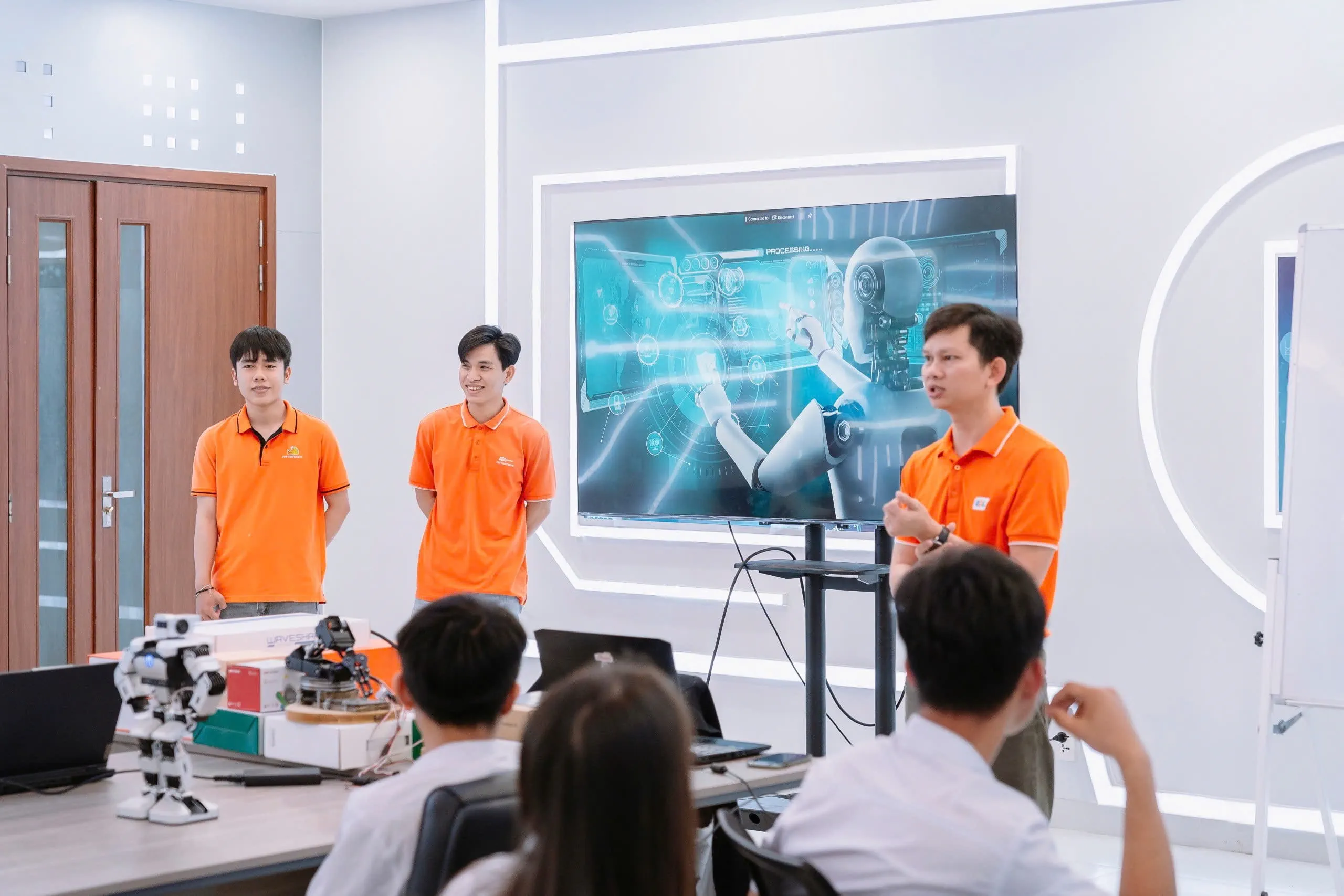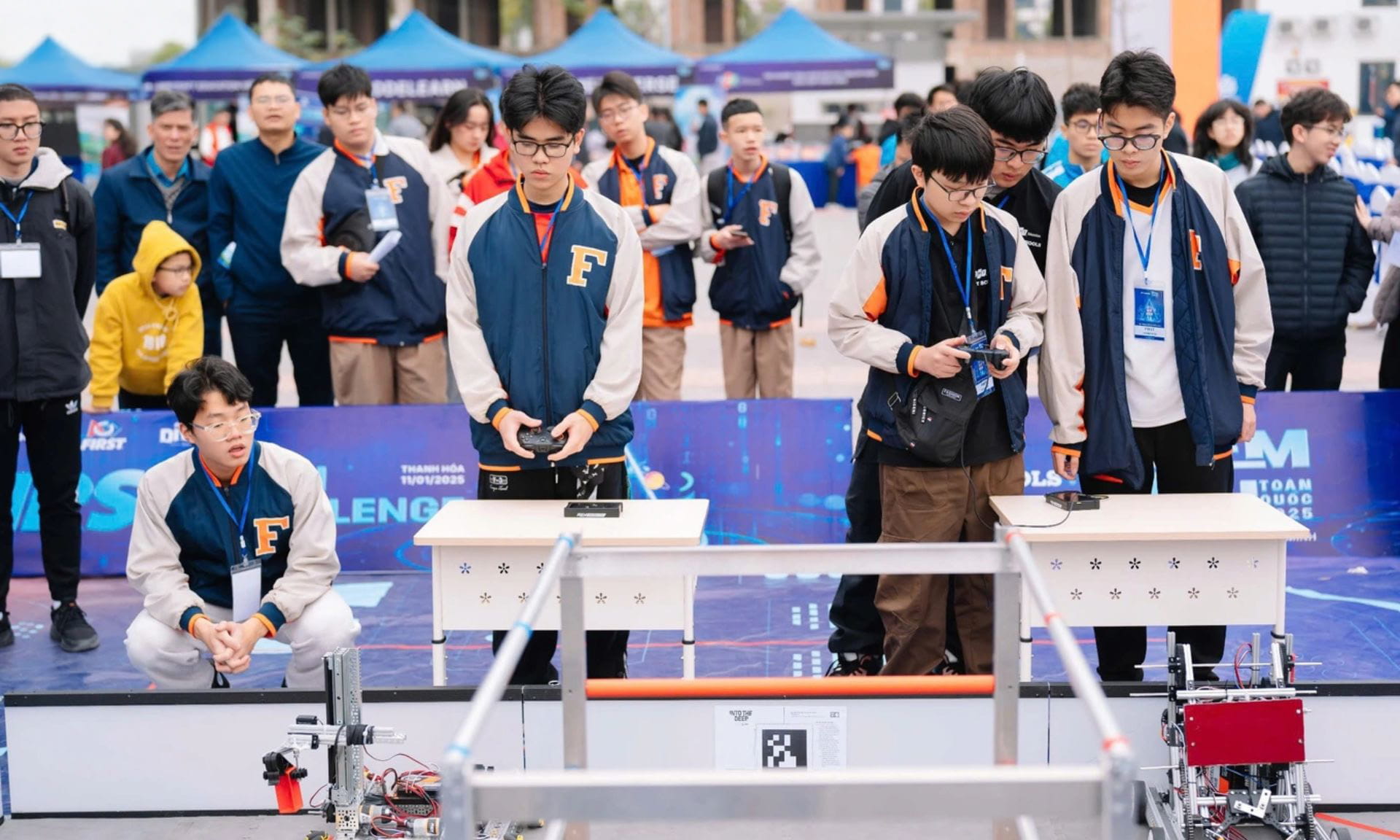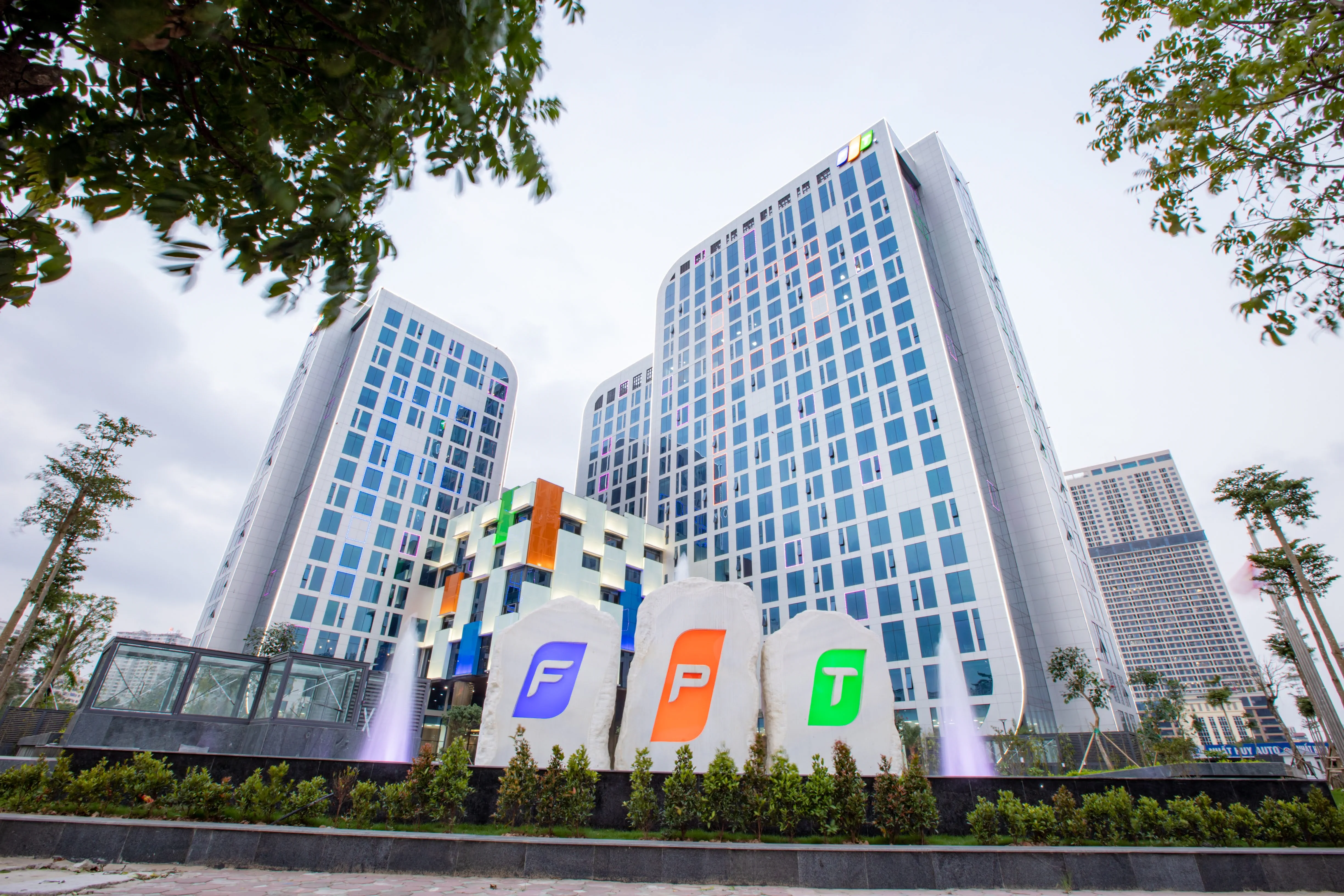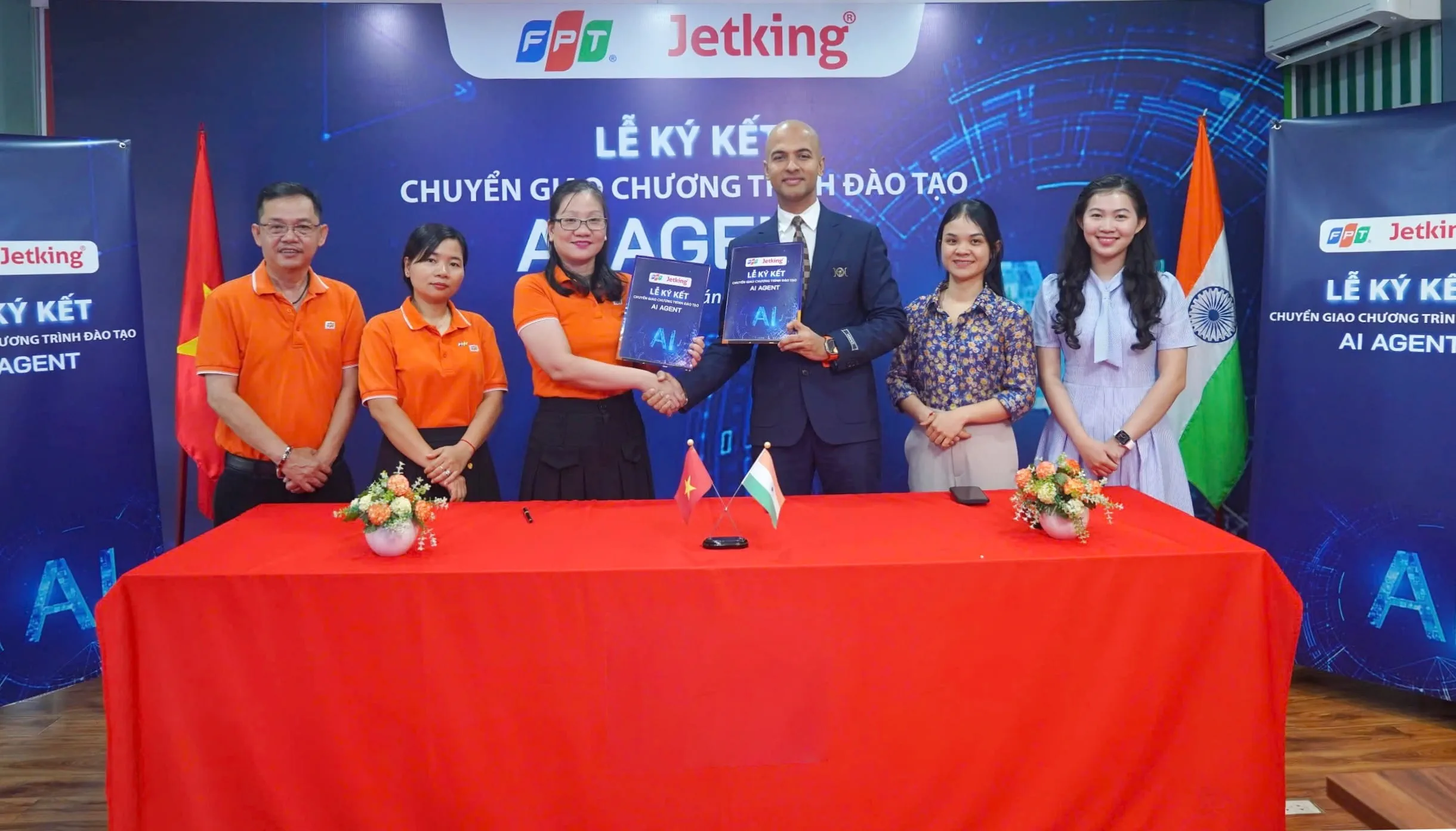Vietnamese Students Risk Falling 10 Years Behind the World If They Don’t Learn AI
•
07/07/2025
The rapid rise of Artificial Intelligence (AI) is reshaping the global labor market, posing major challenges for the younger generation. While many countries have integrated AI into education from an early stage, Vietnamese students are still in the initial phase of exposure.
Global Acceleration in AI Education
In September 2023, Nanjing University, China, announced that Artificial Intelligence would become a compulsory subject for all its students.
The course covers various skills and topics related to AI, including mathematics, programming, data analysis, and interdisciplinary sciences.
Since the previous decade, top universities in China have invested significant resources in AI education. Making AI a mandatory subject reflects China’s unified national strategy established in 2017.
Another country close to Vietnam, Singapore, has also integrated AI into teaching and learning at the university level, led by Nanyang Technological University.
The university utilizes the APS academic profiling system, which applies AI to analyze student data, identify strengths and weaknesses, and create personalized learning plans with practical guidance and recommendations. This approach helps students improve their academic performance and maintain long-term learning motivation.
In Japan, according to a recent survey of 10,000 students from 31 universities, one in two Japanese students uses generative AI. Nearly 30% of students regularly use AI tools for writing reports, translation, and idea consultation.
In 2023, Japan became a pioneer in introducing official guidelines for AI use in schools. These guidelines detail appropriate and inappropriate uses, permitted and prohibited applications, and include warnings regarding data privacy, copyright, and evaluating AI-generated content.
Similarly, the University of Texas (USA) has issued a comprehensive set of guidelines for using AI in teaching and learning. The document provides students with strategies to use AI effectively and responsibly, such as drafting text, generating ideas, and analyzing data, thereby improving study and research efficiency.
Naturally, this also comes with strict principles to ensure fairness and academic integrity.
In Vietnam, AI integration into university curricula has only begun at certain institutions. Starting next academic year, Vietnam National University, Hanoi, will require all first-year students to take a mandatory course titled “Introduction to Digital Technology and Artificial Intelligence Applications.”
Previously, since the 2024 academic year, FPT University has implemented an orientation-week program introducing first-year students to the responsible use of AI in learning. The program not only equips students with basic AI tool skills but also emphasizes responsible and ethical use, ensuring academic integrity while maximizing AI’s potential to support higher education.
While these are positive developments, experts believe Vietnam must accelerate AI integration in education to keep up with global trends.

FPT University introduces an AI orientation program for first-year students during orientation week.
AI Education Should Begin in K–12 Schools
Clearly, making AI education universal for students is an inevitable trend in global higher education. However, to achieve this, each institution must build a clear, long-term strategy.
Currently, most Vietnamese students are not systematically guided on how to use AI effectively, responsibly, and with clear intent.
Experts warn that Vietnamese students risk falling 10 years behind their global peers if they do not learn AI. Many remain vague about what AI is, unaware of the risk of losing job opportunities and competitiveness in the labor market due to weak or lacking AI skills. Meanwhile, the transition to the workforce is approaching rapidly—within five years for first-year students and within one year for final-year students.
One major barrier is that most K–12 students have little exposure to AI. In contrast, under modern educational trends, introducing AI early in primary and secondary education helps students understand technology while developing adaptability, critical thinking, and creativity—core competencies in the digital era.

FPT’s K–12 system offers comprehensive STEM – Robotics – Coding – AI programs for students of all ages.
An emerging trend among Vietnamese parents is shifting school preference from those strong in foreign language education to those excelling in STEM education, particularly Artificial Intelligence.
Ms. Vũ Thị Thanh Phương, a parent from Hai Bà Trưng District, Hanoi, has a son born in 2013. She previously enrolled him in a STEM club to help him approach science and technology from basic skills. However, after some time, she was dissatisfied with the program.
Recognizing AI’s importance to her son’s future, Ms. Phương began researching online, then connected with like-minded parents to form a small STEM study group and hire a tutor for their children. According to her, an increasing number of parents are adopting this short-term approach to provide AI education for their children while AI has yet to be formally introduced in schools.
“My son’s STEM group is only a temporary solution. In reality, children only access fragmented science and technology topics, not a structured, continuous learning system. I, along with many other parents, truly hope schools will embrace digital transformation and officially integrate AI into their core curriculum, so students can learn about artificial intelligence properly without missing the golden opportunity of early adolescence to master AI,” Ms. Phương shared.
In recent years, several K–12 educational institutions in Vietnam have started integrating AI into their curricula. Notably, the FPT Education System announced plans to introduce AI education for students from grades 1 to 12, starting from the 2024–2025 academic year. The program is flexibly designed by age group, ensuring students become familiar with AI from basic to advanced levels, with a minimum of 10 hours per year.
From the 2024–2025 academic year onward, AI will be integrated into the education program for all students in the FPT Education System, from grade 1 to grade 12, with a minimum duration of 10 hours per year.
Pioneering institutions like FPT that introduce AI education early for students are expected to build a modern educational ecosystem, providing a strong AI foundation for the younger generation. However, experts also emphasize that schools should develop AI usage guidelines similar to those established in Japan and at the University of Texas (USA), helping students and learners harness technology effectively while maintaining ethics, fairness, and safety.




